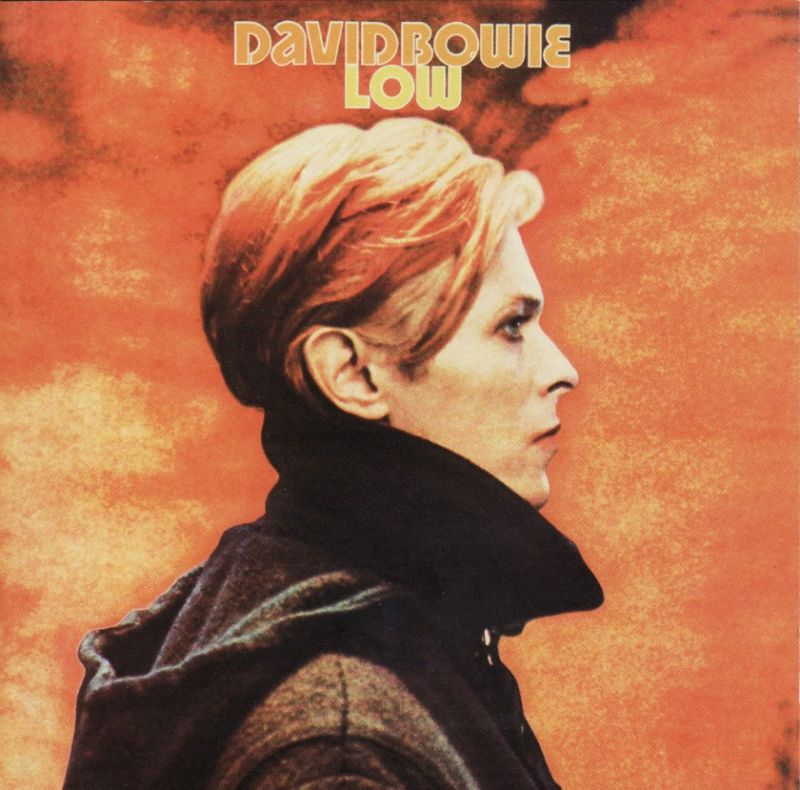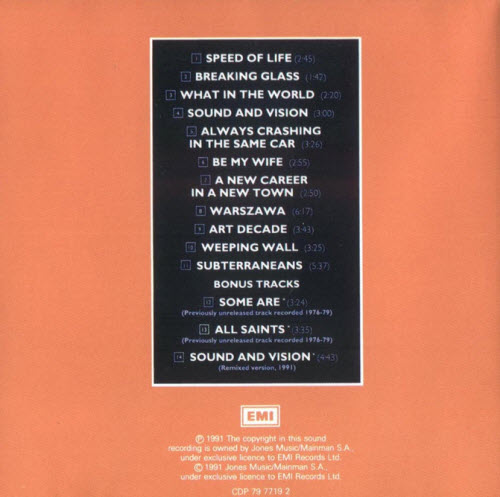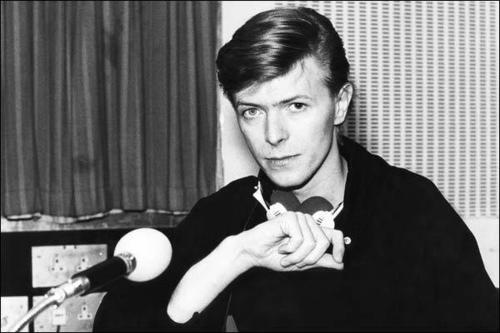 |
The record company begged Bowie not to release Low, but it became a surprise hit and holds up today as one of his most intense and influential albums, inspiring two excellent Berlin trilogy sequels, Heroes (1977) and the insanely underrated Lodger (1979). ~Rob Sheffield (rollingstone.com) — Following through with the avant-garde inclinations of Station to Station, yet explicitly breaking with David Bowie’s past, Low is a dense, challenging album that confirmed his place at rock’s cutting edge. Driven by dissonant synthesizers and electronics, Low is divided between brief, angular songs and atmospheric instrumentals. |
The record company begged Bowie not to release Low, but it became a surprise hit and holds up today as one of his most intense and influential albums, inspiring two excellent Berlin trilogy sequels, Heroes (1977) and the insanely underrated Lodger (1979).
~Rob Sheffield (rollingstone.com)Following through with the avant-garde inclinations of Station to Station, yet explicitly breaking with David Bowie’s past, Low is a dense, challenging album that confirmed his place at rock’s cutting edge. Driven by dissonant synthesizers and electronics, Low is divided between brief, angular songs and atmospheric instrumentals.
~Stephen Thomas Erlewine (allmusic.com)
Speed of Life:
The first of his “Berlin trilogy” (his “triptych”), and probably the best.. although the other two albums (“Heroes” & Lodger) are great as well.
From Wikipedia
| Released | 14 January 1977 |
|---|---|
| Recorded | 1976 at Château d’Hérouville,Hérouville, France, and Hansa Studio by the Wall, West Berlin |
| Genre | Experimental rock, art rock, krautrock, electronic, ambient |
| Length | 38:48 |
| Label | RCA |
| Producer | David Bowie, Tony Visconti |
Low is the eleventh studio album by British musician David Bowie, and co-produced by Bowie and Tony Visconti. Widely regarded as one of his most influential releases, Low was the first of the “Berlin Trilogy”, a series of collaborations with Brian Eno (though the album was mainly recorded in France and only mixed in West Berlin). The experimental, avant-garde style would be further explored on“Heroes” and Lodger. The album’s working title was New Music Night and Day.
Breaking Glass:
The album was co-produced by Bowie and Tony Visconti, with contribution from Brian Eno. As a recovering cocaine addict, Bowie’s songwriting on Low tended to deal with difficult issues, which Bowie described as “pain”: “There’s oodles of pain in the Low album. That was my first attempt to kick cocaine, so that was an awful lot of pain. And I moved to Berlin to do it. I moved out of the coke center of the world [i.e., Los Angeles, where Station to Station was recorded] into the smack center of the world. Thankfully, I didn’t have a feeling for smack, so it wasn’t a threat.” Producer Tony Visconti contended that the title was partly a reference to Bowie’s “low” moods during the album’s writing and recording.
Sound & Vision:
Track Listing:
All lyrics written by David Bowie; all music composed by David Bowie except where noted.
- Side one
- “Speed of Life” – 2:46
- “Breaking Glass” (Bowie, Dennis Davis, George Murray) – 1:52
- “What in the World” – 2:23
- “Sound and Vision” – 3:05
- “Always Crashing in the Same Car” – 3:33
- “Be My Wife” – 2:58
- “A New Career in a New Town” – 2:53
- Side two
- “Warszawa” (Bowie, Brian Eno) – 6:23
- “Art Decade” – 3:46
- “Weeping Wall” – 3:28
- “Subterraneans” – 5:39
Warszawa:
Personnel
- David Bowie – vocals, guitar, pump bass, saxophones, xylophones, vibraphones, harmonica, pre-arranged percussion, keyboards: ARP synthesiser, piano, Chamberlin (credited on the album sleeve notes as “tape strings”, “tape-cello” and “tape-horns”)
- Brian Eno – vocals, splinter Minimoog, report ARP, guitar treatments, piano, keyboards, synthetics, Chamberlin, other synthesisers
- Carlos Alomar – rhythm guitar
- Dennis Davis – percussion
- George Murray – bass
- Ricky Gardiner – guitar
- Roy Young – piano, Farfisa organ
Additional personnel
- Peter and Paul – piano, ARP synthesiser
- Mary Visconti – backing vocals on “Sound and Vision”
- Iggy Pop – backing vocals on “What in the World”
- Eduard Meyer – cellos
Album of the day:
Other January 14:
- Bob Dylan second recording session for Bringing It All Back Home
(separate post)
– - Allen Toussaint (born January 14, 1938) is an American musician, composer, record producer, and influential figure in New Orleans R&B.Many of Toussaint’s songs have become familiar through versions by other musicians, including “Working in the Coalmine”, “Ride Your Pony”, “Fortune Teller”, “Play Something Sweet (Brickyard Blues)”, “Southern Nights,” “Everything I Do Gonna Be Funky”, “I’ll Take a Melody” and “Mother-in-Law”.
– - Elvis Presley recorded “Wearin’ that loved on look”, “Gentle on My Mind” & “I’m Moving On” in 1969.
– - Joseph Henry Burnett (born January 14, 1948), widely known as T-Bone Burnett, is an American musician, songwriter, and soundtrack and record producer.He was a guitarist in Bob Dylan’s band on the Rolling Thunder Revue. After that tour ended, Burnett and two other members of the backing band formed The Alpha Band, followed by his first solo album in 1980.
– - David Eric “Dave” Grohl (born January 14, 1969) is an American rock musician, multi-instrumentalist, and singer-songwriter, who is the lead vocalist, guitarist, primary songwriter and founder of the Foo Fighters. Prior to this, he was the drummer for the grunge bandNirvana. He is also the drummer and co-founder of the rock supergroup Them Crooked Vultures.
–
-Egil




